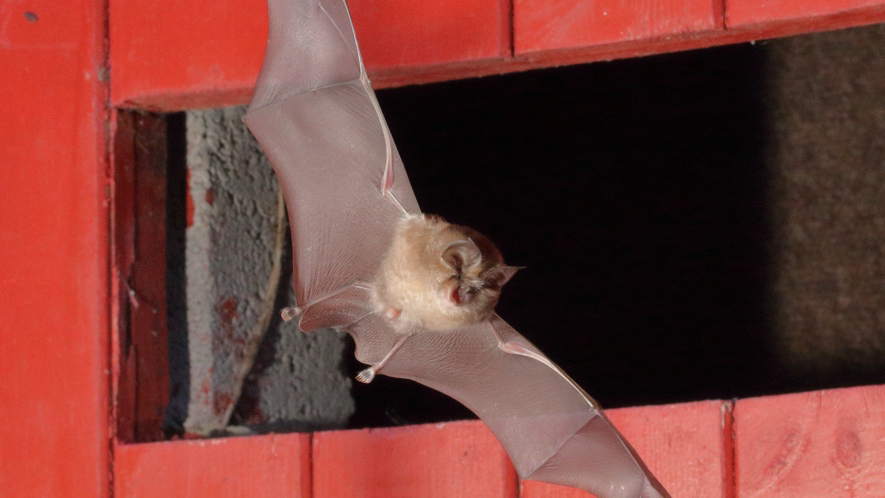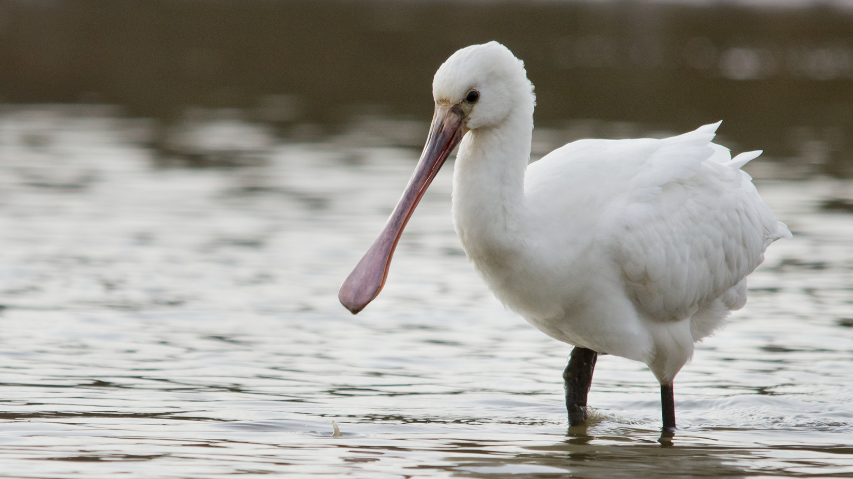Toilet block shock as rare bat spotted

A lesser horseshoe bat was spotted at a toilet block
- Published
A rare British bat species has been spotted dangling from a toilet block after a century's absence from Derbyshire.
The lesser horseshoe bat had not been recorded in the county for more than 100 years before being seen on 14 August.
A Severn Trent ranger at Ladybower Reservoir spotted the winged mammal sheltering under the porch of the toilets at the Heatherdene Car Park.
He photographed the animal, allowing it to now be confirmed by experts at Derbyshire Bat Group as the rare species.
The lesser horseshoe, scientific name Rhinolophus hipposideros, were last recorded live in the 19th Century in the Matlock and Dovedale areas, said Derbyshire Bat Group.
Fossil records also exist of lesser horseshoes in Derbyshire at the Dowel cave near Buxton and the Pin Hole at Creswell Crags.
'Distinctive calls'
The rediscovery was a pleasing one for the group, as across the country populations have been declining - although it is not known if the species has begun roosting in the area or if the bat was a lone individual "exploring new territory".
The nearest known populations are about 40 miles (64km) away in Staffordshire, said the group.
Group chairman Steve Roe said: "The return of the species is very exciting, and is the 13th of the UK's 18 resident bats to be found in the county.
"Derbyshire Bat Group is now working with Severn Trent Water to deploy remote detectors in the hope that the species' distinctive echolocation calls can be located."
Lesser horseshoe bats are one of two horseshoe bats found in the UK, alongside greater horseshoes.
One of the smallest British species, lesser horseshoes are plum-sized and able to wrap their wings completely around their body while at rest.
The bats were originally cave dwellers, but colonies are now usually found in the roofs of larger rural houses and stable blocks in the summer and cellars, caves or tunnels during winter months.
The Wildlife Trusts say, external its official name, rhinolophus hipposideros, comes from the Greek meaning "nose crest"; the specific name, hipposideros, means "horse-iron" or horseshoe.
The name refers to the noseleaf of the lesser horseshoe bat, which is particularly complex, in order, it is believed, to allow it to focus the echolocation pulses it emits to find its prey.
Get in touch
Tell us which stories we should cover in Derby
Follow BBC Derby on Facebook, external, on X, external, or on Instagram, external. Send your story ideas to eastmidsnews@bbc.co.uk, external or via WhatsApp, external on 0808 100 2210.
Related topics
- Published6 August 2024
